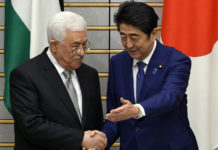Blind spots, be it in sports or driving a vehicle, is a weak link that can cause ‘crippling injury’ if not hi-lited and may become ‘blind pools.’ To hi-lite, is not to put-it-down, but point-it-out so that it may be recognised, understood, and eventually and collectively addressed.
Any development, especially a young movement with some traction, like 40 plus year old Islamic finance, needs feedback from insiders and outside well -wishers. This continuous feedback should be viewed as (more) constructive (and less) criticism.
Blind Spots
-Qualified staffing: there are so many on-line and off-line courses, diplomas, certificates, etc., yet the topic of qualified people at/near the top is raised at every Islamic finance event for last 16 years. Yes, there plenty of entry-level opportunities, but are there glass ceilings in Islamic finance? A loaded question, and top management will say ‘of course no ceilings.’ I would be keenly interested in hearing of examples of clerks, tellers, and relationship managers eventually moving into the C-Suite of Islamic Banks.
So, it seems the preferred route for short term oriented Islamic finance is instant gratification, where you attract a conventional banker, give them Islamic finance 101 study guides for few weeks, and, viola, they become Islamic bankers. Is it because of their experience in banking, but Islamic banking foundation is different or is it ‘smoke and mirrors?’ Sometimes, when you begin with a questionable foundation, the structure will not allow you to get to the ‘penthouse.’
-Shortage of Shariah Scholars: same as above, where are the women Shariah Scholars (beyond the few in Malaysia)? There is no prohibition, and it is not discouraged, so, what’s the issue? Is this a reflection of male dominant Muslim country cultures extending to all professions?
-Will standardization and technology disruption, database of all fatwas in one accessible place, reduce, not eliminate, the need of scholars? To many outside observers, it seems there are only a handful of scholars that serve on the boards of most of the institutions. Query: If technology can be the gatekeeper of permissibility, can Islamic finance lessen the reliance of Shariah scholars?
-Crowd funding (CF), especially real estate, and Peer-2-Peer (P2P) lending will financially disrupt Islamic banks as access to compliant finance and risk capital (VC) will be available to masses; meaning the youth, women, and entrepreneurs. These three stakeholders are change agents, middle class in the wait, and drivers towards knowledge base economies. But, Muslim country government and corporates seems to be in comfort zone of status quo of commodity growing/extracting and manufacturing based economies.
Thus, Islamic finance needs to either launch CF or P2P platforms, unlikely, or become a partner, assuming regulatory issues are not breached, where warehouse lines are provided. This begs the question, if Islamic banks cannot or will not lend to SMEs in a meaningful manner, why would they provide a warehouse line indirectly through a platform?
-Are Islamic financial institutions (and structures) embedded on B2B ecommerce platforms (with SMEs) to facilitate transactions or even trade finance? The B2C marketplace model, have become flash sale sites, are not getting traction, in India, Malaysia, etc., and with the recent announcement by Japan based Rakuten announcing closing of marketplace from Malaysia, Singapore and Indonesia, does it reduces interest of Islamic finance payment gateway?
-The numbers game: there are 2 billion Muslims, but how many want Islamic finance (as nearly 1.9 billion have not access to it)? There are 57 Muslim countries, 22 are least developed, how many have ‘Islamizied’ their economies? There are over 700 Islamic financial institutions, but their paid up capital is in the same range of market capitalization of a company in the Russell 2000 Index (small cap companies).
Consolidation, especially takaful operators, would appear to be the intelligent way forward to achieve size and economies of scale to lead syndicate finance for big ticket items, instead of grabbing ‘crumbs’ on the table. In certain countries, read the six GCC, Islamic bank merger is not a common phenomenon, why? Culture, to be acquired, especially if family owned or majority held, brings ‘shame?’ Furthermore, in overbanked markets, relative to population, like Dubai and Bahrain, want to avoid destructive competitions.
-With the sanctions being lifted against Iran, what contribution, especially growth rate and overall size, can be expected by Islamic finance, including innovations? But, will there be issues of ‘shia’ banking raised in the GCC? Will we see an increased issuance of Sukuk, assume structures are same, especially with many infrastructure projects needed in Iran?
For example, news reports have stated Iran will be making large order for the A380, the huge airbus planes deployed by Emirates Airlines. Two points; (1) today, Iran does not have the infrastructure at the airport for A380s, staff properly trained for seamless journeys, and (2) open sky agreements with many countries. Furthermore, Iran would be competing with Dubai, Abu Dhabi and Qatar for Middle East hub for ‘hub-spoke’ strategy!
-With low oil prices, and possibly sustained for the near future, and its impact in the GCC stock markets, bank lending (especially to SMEs), government surplus, etc., will the shine of Islamic finance dim? Will low oil prices result in NPLs rising for Islamic (and conventional) banks in GCC to the point of provisioning write-offs, hence, requiring rescue packages?
The scenario sounds like the first credit crisis. Today, there are stories of SME owners in, say, Dubai leaving the country (unannounced) because cash flows are not meeting interest payment obligations, and they want to avoid incarceration.
-What Islamic asset classes will provide positive returns in this market environment of low oil prices, stock markets moving sideways, and lingering uncertainty? Income oriented funds that are comprised of non-cyclical companies? Capital protected funds (usually have high fees)? What about an Islamic equity fund comprised of listed companies selling halal food, halal cosmetics, and halal pharma? Are there enough liquid companies here?
Will we finally see demand for low-cost Islamic index funds and ETFs? The Muslim world has not seen the rise of passive investing, why? Is it because product sponsors want part of the active management fees, yet funds deliver closet index returns over time.
We are increasingly reading about Islamic investing reaching out to the SRI, CSR, Impact Investing, Sustainability, and Responsible finance, but are latter movements reaching out to Islamic investing? Few questions:
+Isn’t Islamic finance responsible finance? It’s about inclusion. It’s about promoting ethical sectors (by negative screening)? It’s about access to compliant micro-credit and capital. It’s about avoiding the debt trap. So, Islamic finance needs to learn from the actual practice of conventional responsible finance?
-Are Islamic banks promoting (funding/financing) Muslim lifestyle verticals? Are they leading the conversations or, at least, part of conversations concerning incubators and accelerators? Whether its by way of VC (fashion, cosmetics, food or travel/tourism space), inventory financing, trade financing, takaful, etc, or even directing some funds to Trust-Foundations dedicated to inclusion of women entrepreneurs? This is about relevancy to the youth, both as place to work and source funds.
Conclusion
Islamic finance is not a miracle cure for the financial ills of the world or the Muslims. It is a viable alternative that will become conventionally efficient over time, however, each one of us have responsibility, as stakeholders, to help overcome the movement’s blind spots.
Where do you see the blind spot?









